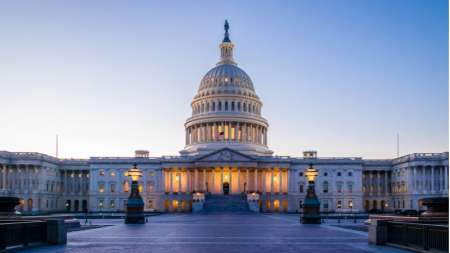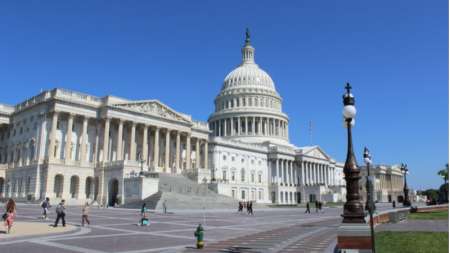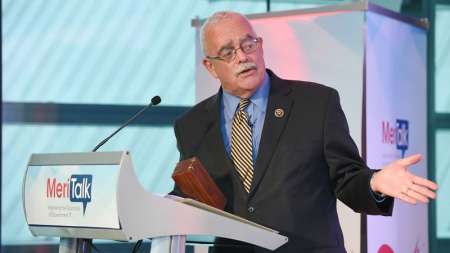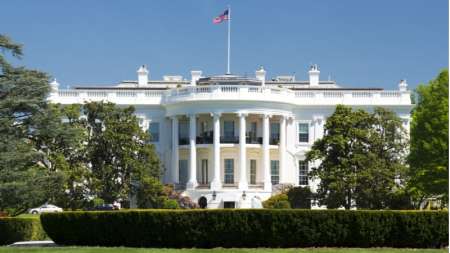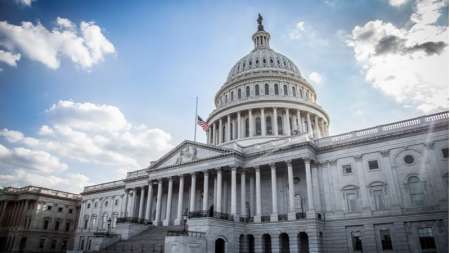After the transmittal of the bill took longer than initially expected, the House of Representatives now plans to vote on the Senate version of the $1.9 trillion American Rescue Plan Act on Wednesday, March 10, according to multiple reports. The House vote had been expected on March 9. […]
As Congress closes in on pushing through a historic funding increase for Federal IT modernization, former Federal IT officials gave the latest legislative advancement a warm welcome today and offered an early look at some types of projects that might benefit most from quick investments. […]
The House plans to vote Tuesday, March 9 on the version of the American Rescue Plan Act approved by the Senate over the weekend, setting the stage for the $1.9 trillion coronavirus relief bill to become law with President Biden’s signature later this week. […]
The Senate voted March 6 to approve the $1.9 trillion American Rescue Plan Act after a lengthy amendment and debate process that pushed the vote into the weekend. […]
The Senate as of late Friday afternoon was continuing to debate the Biden administration’s $1.9 trillion American Rescue Plan Act, which contains considerable increases in Federal government funding for agency IT modernization and security upgrades. […]
After some delay waiting for an official bill “score” from the Congressional Budget Office (CBO), the Senate voted today to begin debate on legislation that embodies the Biden administration’s $1.9 trillion American Rescue Plan. […]
The Senate was expected later today to introduce its version of President Biden’s $1.9 trillion American Rescue Act, and to begin 20 hours of scheduled debate on the legislation. […]
After the House version of the reconciliation bill passed last week, the Senate will bring its version of the bill to a vote by week’s end, Senate Majority Leader Chuck Schumer said. While the Senate is still working on finalizing its draft of the legislation, parameters for votes and amendments have already been set, according to internal Senate communication. […]
The House version of the American Rescue Act – born from President Biden’s $1.9 trillion COVID-19 relief proposal unveiled in January – now features a provision that would provide $2 billion for the Department of Labor (DoL) to use to help states upgrade their unemployment insurance (UI) systems. […]
The House Rules Committee will take its turn with the American Rescue Act on Feb. 26 at 9:30 a.m., bringing the COVID-19 relief bill one step closer to a full House vote. […]
Military budgeting experts said today on Capitol Hill that the Defense Department (DoD) needs to tighten up on its budget procedures including the way the Pentagon measures and reports readiness, and improving estimations in annual budget requests. […]
The House Budget Committee has completed its markup of President Biden’s $1.9 trillion American Rescue Act, keeping the bill on schedule for a vote in the full House later this week before it heads to the Senate for consideration. […]
Continuing the budget reconciliation process, the House Budget Committee began marking up the House version of President Biden’s American Rescue Act on Feb. 22, as the House looks to bring the bill to a vote later this week. […]
The House Energy and Commerce Committee completed its portion of the budget reconciliation process, voting late on Feb. 12 to transmit the final part of the legislative language it was considering. […]
The House Energy and Commerce Committee is nearing the completion of its portion of the legislative language writing process for the budget reconciliation process. After a long night Feb. 11 and another full day of meeting in committee, the committee is nearly done finalizing the language it will send to the House Budget Committee. […]
Congressional Democrats are moving forward this week with the budget reconciliation process that aims to create the legislative language for President Biden’s $1.9 trillion coronavirus relief plan. […]
Following a Senate vote earlier this week to proceed with debate on a budget resolution, the House of Representatives passed a concurrent budget resolution with reconciliation instructions on Feb. 3. […]
In the first legislative step toward paving the way for easier passage of President Biden’s $1.9 trillion COVID-19 relief plan, House Speaker Nancy Pelosi, D-Calif., and Senate Majority Leader Chuck Schumer, D-N.Y., introduced the text of a joint 2021 budget resolution on Feb. 1. […]
A group of eight House Democrats is pushing House leadership to include in the next round of COVID-19 relief legislation the $9 billion boost to the Technology Modernization Fund (TMF) proposed by President Biden earlier this month. […]
The Federal Communications Commission is seeking public comment on how to best distribute $3.2 billion of funding approved by Congress late last month as part of combined FY 2021 government funding and COVID-19 relief legislation to help low-income Americans access internet services. […]
After an unusually noisy holiday news week, here’s a quick catch-up. After threatening to derail a combined $2.3 trillion spending bill, President Trump on Dec. 27 signed combined FY 2021 government funding and COVID relief legislation. President Trump on Dec. 31 issued an executive order that will give all Federal government civilian employees a one percent pay raise in 2021. The House on Dec. 28 and the Senate on Jan. 1 voted to override President Trump’s Dec. 23 veto. […]
A long weekend of deals and a late night of voting turned a nine-month stalemate into a 5,593-page COVID relief and omnibus measure to fund the Federal government through September 2021. The House and Senate approved the legislation late on Dec. 21, and sent the bill to President Trump for his signature. […]
After months with no movement and a weekend full of deal-making, Congress is expected to pass a $900 billion COVID-19 relief package as part of a broader Fiscal Year 2021 (FY21) omnibus spending bill. The relief includes a new round of Payment Protection Program (PPP) funding, money for broadband deployment and emergency use, and money to remove banned Huawei and ZTE equipment. […]
The Senate unanimously passed the weeklong continuing resolution (CR) by a voice vote on Dec. 11, clearing the way to avoid a Federal government shutdown at midnight. The Senate approved the CR passed by the House of Representatives earlier in the week. The CR will now go to President Trump’s desk for final approval. […]
The House of Representatives late today approved a continuing budget resolution (CR) that funds Federal government operations through Dec. 18. The CR still needs Senate approval to avoid a Federal government shutdown when existing funding authorization expires on Dec. 11. […]
Rep. Abigail Spanberger, D-Va., along with 16 House colleagues in a Dec. 7 letter, called on Senate and House appropriators to prioritize funding for broadband infrastructure projects and reject proposed cuts included in the Senate version of the Fiscal Year (FY) 2021 funding bill. […]
The House of Representatives will vote Dec. 9 on a one-week extension of the continuing budget resolution (CR) which is set to run out on Dec. 11 – avoiding an imminent Federal government shutdown for a lack of funding. […]
The new draft budget bills released by the Senate Committee on Appropriations on November 10 include multiple provisions across departments that will have implications for Federal IT and other modernization projects. […]
The draft appropriations bills released by the Senate Committee on Appropriations today would put a pay freeze in place for civilian Federal employees in fiscal year 2021 – falling below even the Trump administration’s one percent pay increase proposal – while providing a three percent pay raise for members of the military, which matches the number from the White House. […]
The Senate Committee on Appropriations has allocated $25 million of new funding for the Technology Modernization Fund – falling below the Trump administration’s budget request of $150 million – as part of the broader draft fiscal year 2021 Financial Services and General Government funding bill released today. […]



